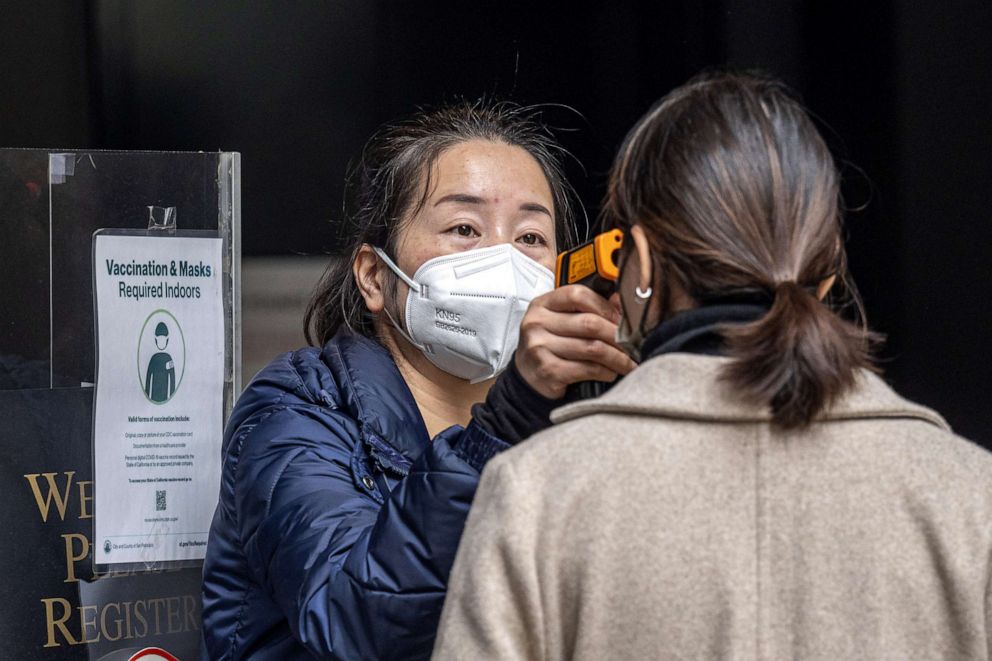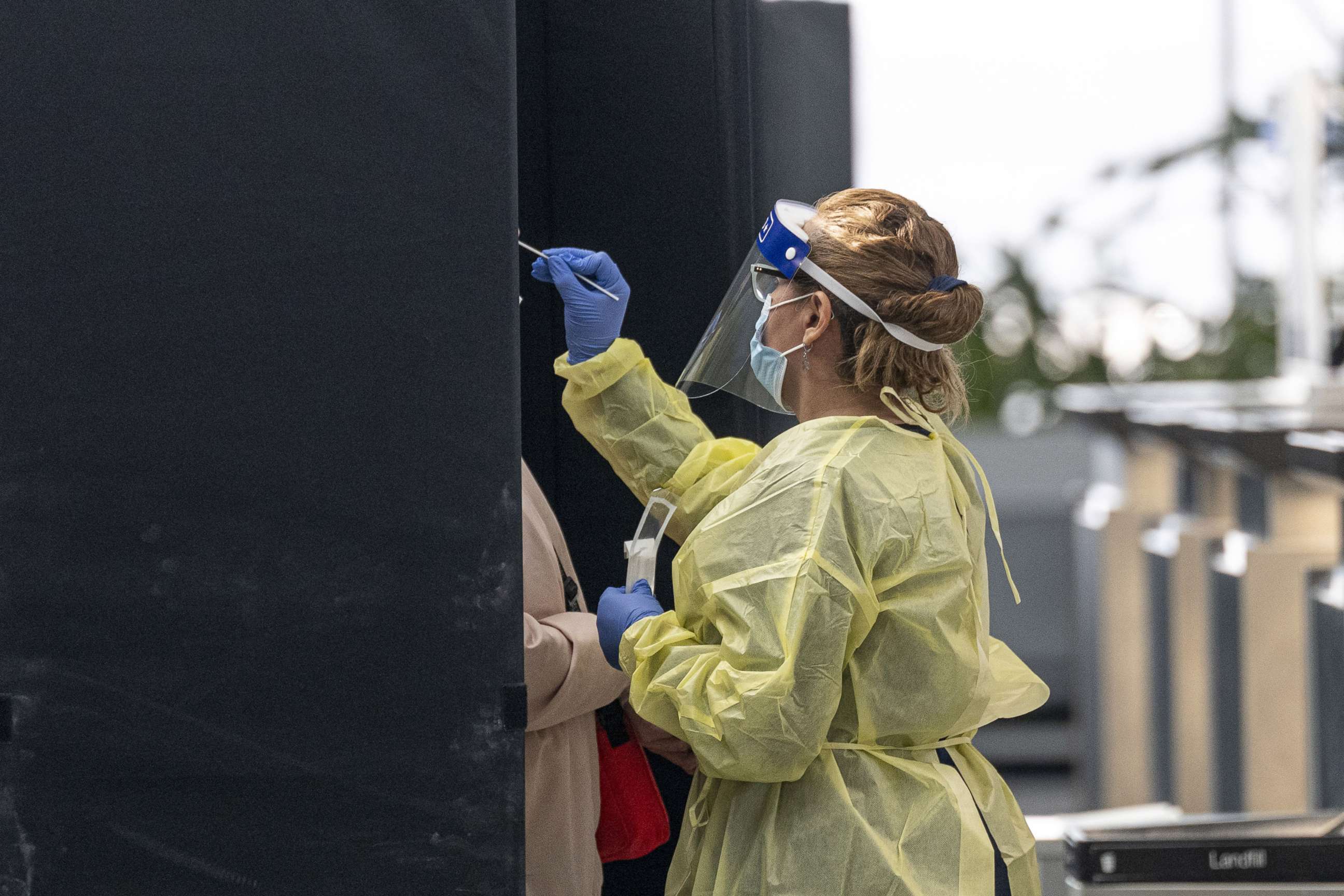San Francisco reducing COVID testing hours because of staff shortages
It comes as San Francisco records an average of 1,245 new cases per day.
The San Francisco Department of Public Health said it is reducing hours at some COVID-19 testing sites due to staffing shortages.
The decision comes despite warnings from experts about the importance of COVID testing to keep up with the surge of the highly transmissible omicron variant.
"On Monday, some SFDPH-affiliated sites will temporarily reduce testing hours due to challenges beyond our control," the department tweeted Sunday. "Please check your health system first for testing. Do not go to the ER for tests."
In a statement released Monday, SFPDH said it expects testing capacity will only be reduced "by about 4%, or approximately 250 tests per day out of the current 7-day average of 6,000 tests per day at SFDPH-affiliated sites."
Additionally, only four sites are being impacted by reduced hours and the department insists the change is temporary.
It's unclear how many workers are out sick. San Francisco Mayor London Breed revealed last week that more than 400 city employees were out due to either COVID-19 infections or isolation after potential exposure.
It comes as San Francisco is recording an average of 1,245 new cases per day, which is the highest ever since the pandemic began and a 1,600% increase from one month ago, city data shows.

Dr. Peter Chin-Hong, an infectious disease specialist at the University of California, San Francisco, told ABC News he is worried the reduced hours will mean that COVID-19 cases are missed.
"It's going to have a terrible impact," he said. "It reminds me of early March 2020 when we didn't have enough testing. Of course we have a lot more tests numerically, but the proportion seems to be the same because the percentage of those needing testing is definitely not met by the number of available tests."
Matt Haney, a member of the San Francisco Board of Supervisors, said reducing the hours of operation at COVID-19 testing sites is unacceptable.
"It was already hard to get a test in San Francisco and now it just got harder and that’s unacceptable," he told ABC News. "Our department of public health had expanded capacity at a number of sites. But it wasn't enough. Now they’re cutting back because of staffing shortages."
Testing capacity has been stretched to an all-time high, according to SFDPH.
Haney, however, argued that testing sites need to make sure they are consistently meeting demand.

"The level of demand for tests exceeds anything we had seen," he said. "Health officials also feel the private providers need to do more testing. I think all of those things are true, yet our residents need our public health department to step up and get the job done."
Haney wants to call a hearing on testing to get more answers on why it's been so difficult for residents to get tests.
"You may have heard that people are calling 911 to get tested," he said. "When people get exposed or they're not feeling well, if the county tells them go to get a test and then they can’t get tested, that’s freaking them out and they're calling 911 -- and our 911 lines are overwhelmed because what people are being told to do can’t be done."
There are ways to prevent the staffing shortages from having a large impact, according to Chin-Hong, such as deploying the National Guard to sites, which Gov. Gavin Newsom did over the weekend.
"There are also some creative strategies like utilizing student volunteers who are in health professions, like medicine, nursing, pharmacy, to go out," he said. "They have some medical background. It's kind of an all hands on deck perspective. It doesn't take a lot of training to do a swab; people do that at-home after all."
He also recommended that testing sites become more diverse and be expanded to offices, community centers and banks.




